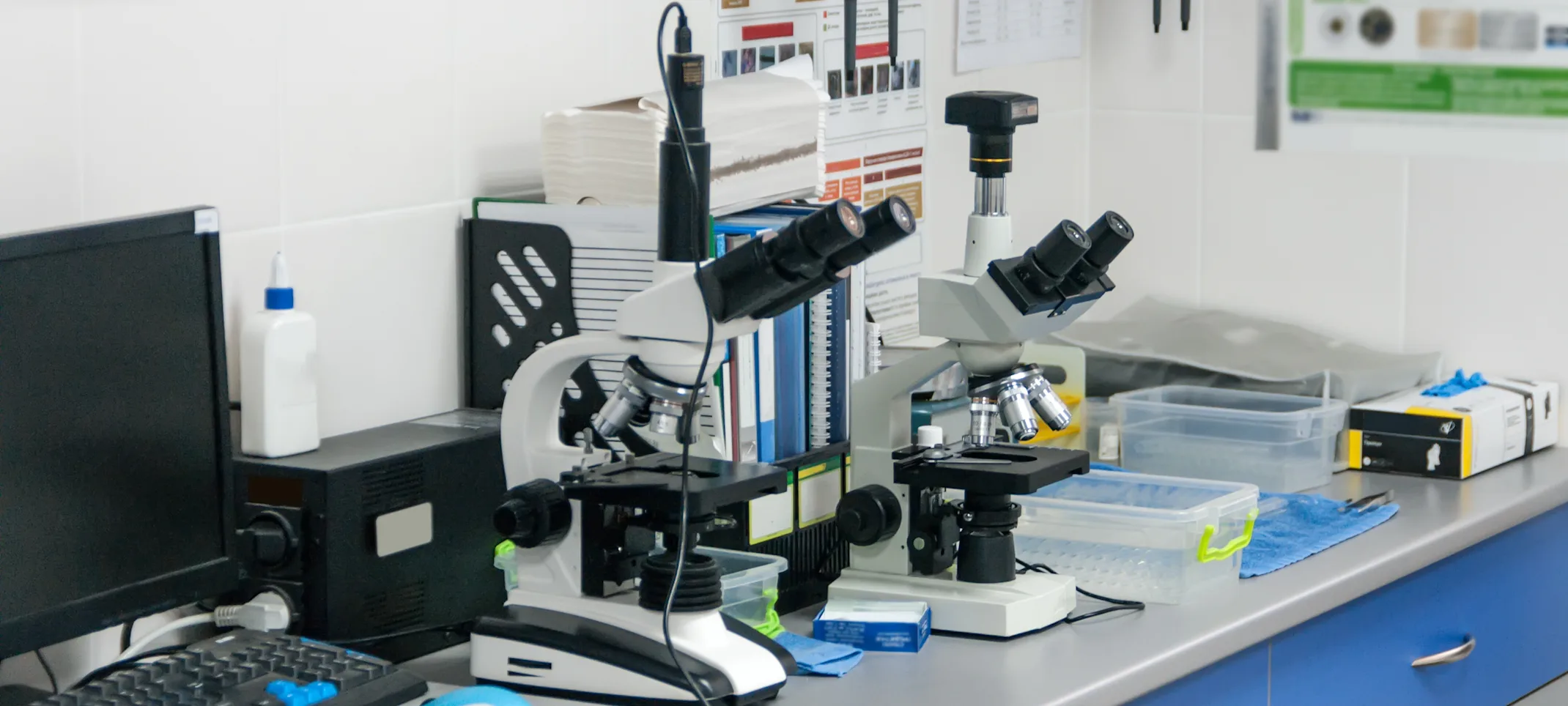Anderson Veterinary Clinic
In House Laboratory/ Diagnostic Testing
Laboratory services can identify problems your pet may be experiencing so that proper treatment can begin before a condition worsens.

An in-house pet laboratory is specifically designed for the diagnostic testing of animals, typically pets such as cats and dogs. They are equipped with the necessary equipment and staff to perform a wide range of diagnostic testing. It eliminates the need to send samples to an outside laboratory, which can take several days to receive results.
These tests can include blood work, urinalysis, fecal analysis.
This allows veterinarians to quickly and accurately diagnose and treat a wide range of medical conditions, and with immediate access to test results, veterinarians can make prompt and informed decisions about the best treatment for their patients.
If your pet has a skin or ear infection or has masses, our doctors will offer to perform cytology to better evaluate what is occurring. Cytology consists of collecting samples of cells in the area of interest and examining them under the microscope to identify bacteria, fungus, and mites or evaluate the type of cells a tissue or mass is comprised of.
The laboratory equipment used in an in-house pet laboratory is state-of-the-art and specifically designed for use in animals. This includes blood chemistry and hematology analyzers, microscopes for examining cells and tissues, and culture equipment for growing bacteria and other microorganisms. These tools and technology allow veterinarians to perform a wide range of diagnostic tests and make accurate diagnoses, leading to better pet outcomes.
Veterinary laboratories are a significant part of providing quality care for pets.
BLOODWORK
In cases of illness, wellness/preventative care visits, and prior to surgery, our doctors will recommend performing bloodwork to better evaluate your pet’s organ functions. Most commonly run is a CBC and a Biochemistry. Biochemistry will provide values that are reflective of many systems, including kidney and liver function, blood glucose, and electrolytes. CBC will provide values that evaluate for signs of anemia or inflammation.
URINALYSIS
Collection and analysis of urine can help diagnose potential urinary tract infections and evaluate kidney function as well as other conditions.
If bacteria are present in the urine, a culture and sensitivity will often be recommended to ensure the appropriate antibiotic is used to treat the infection.
CYTOLOGY
If your pet has a skin or ear infection or has masses, our doctors will offer to perform cytology to better evaluate what is occurring. Cytology consists of collecting samples of cells in the area of interest and examining them under the microscope to identify bacteria, fungus, and mites or evaluate the type of cells a tissue or mass is comprised of.
HISTOPATHOLOGY
If your pet is having a mass removed, it is recommended to submit the mass for histopathology. This will allow identification of what the mass is and if the mass was fully removed.
